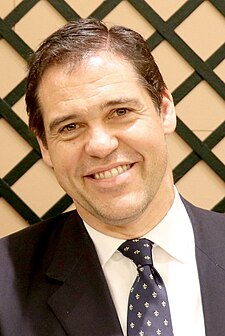
People are also trading
@DanielParker You might think so, but as the questioner has confirmed there is no current king of France, it depends on the definition of bald: just lacking hair or requiring a scalp wholly or partly lacking hair?
@DanielParker If this was a more serious poll, yes. But sometimes it is fun to make a poll where the question doesn't necessarily make sense and force people to give a definite answer, to see what answer people give when pressed.
@ChristopherRandles I think it is plausible to say that the current king of France neither has nor lacks hair, given that he doesn't exist. Or maybe more precisely, it is not the case that the current king of France either has or lacks hair. Under this interpretation, it doesn't matter how "bald" is defined.
@JosephNoonan Perhaps it is plausible and I would agree that if the definition of bald was just lacks hair then it is ambiguous as to what is meant. Does a non existent thing lack feature X? Could say yes because feature x is not present or no because the thing is non-existent.
However if the definition is 'having a scalp lacking hair': Then as the question does include bald then the question could (should?) be rewritten as
Does the current king of France both a) have a scalp and b) lack hair on that scalp
a) is false even if b) is ambiguous it does not matter both are required and this is false.
Having put bald in the question, it needs a definition and your "it is not the case that the current king of France either has or lacks hair." is not equivalent. But I could be confused.
@TenShino A note on this. A logical form for the statement "the current king of France is bald" could be ∃!x(K(x)∧B(x)), which would be false since the domain is empty. The tricky part is that the question is not "True or false: the current king of France is bald", it's "Is the current king of France bald?", meaning I could model the question as a statement in a different manner to force it to come up as true.
I changed my mind to false because I think "the current king of France is bald" is the most straightforward way to declare the question as a statement, but it's ambiguous.
@TenShino It was intended to be referring to the statement "The current king of France is bald." I'm not really sure what else it could be asking. But there is some controversy over how a statement like that should be interpreted. Some logicians would say it's not a true proposition at all, while others would agree that it's equivalent to your formulation.
@ChristopherRandles I don't think it necessarily does. Even if you define bald as, "not having hair", does it make sense to say that the current king of France is bald? I don't think it does. It doesn't make any sense to attribute properties to something that doesn't exist.
Interesting. The first thought is that France is a republic and therefore no King.
However perhaps it is more about the meaning of "bald": Does bald mean just a lack of hair (true if there is no king) or does it require there to be a head with no hair?
The definition I found said
having a scalp wholly or partly lacking hair.
So that seems to suggest answer is no.
Current pretenders:

(Pretender to the throne of the Kingdom of France)

(Pretender to the throne of the King of the French, which may or may not be the same thing as King of France depending on interpretation of the grammar.)
(Pretender to the throne of the Emperor of the French, so not technically claiming to be king of France)

(Not an actual pretender as he doesn't assert the claim, but current heir to the Jacobite/House of Stuart claim to be king of England, Scotland, Ireland, and France)